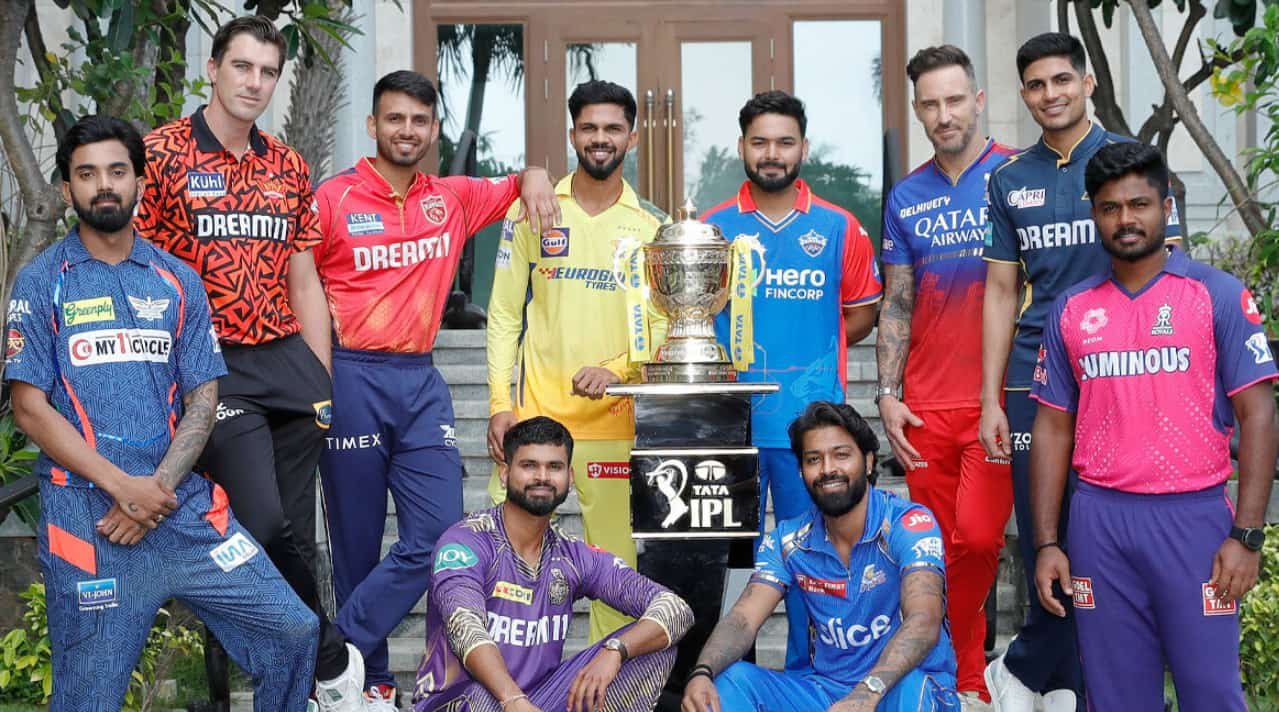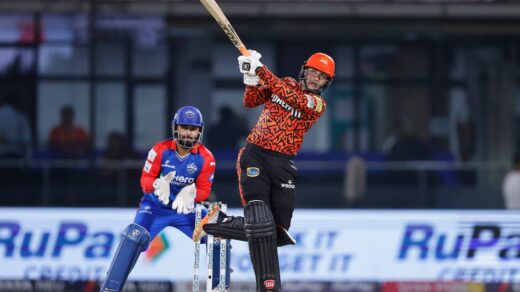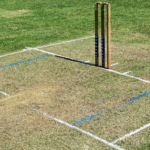The journey of identifying the most unsuccessful team in ipl history requires examining both statistical performance and business operations that have prevented certain franchises from achieving championship success.
While the Indian Premier League has produced incredible champions, it has also created stories of persistent struggle where talented teams consistently fall short of expectations despite significant investments and passionate fan support.
Understanding why certain teams remain unsuccessful involves analyzing their complete operational framework – from player performance and team statistics to business decisions and infrastructure investments.
These teams often possess individual brilliance but lack the systematic approach needed for sustained success in modern professional cricket.
The concept of being unsuccessful in the IPL extends beyond simple win-loss records. It encompasses missed opportunities, poor strategic decisions, inadequate infrastructure, and the inability to convert potential into consistent performance.
Teams that fail to address these fundamental issues often find themselves trapped in cycles of underperformance, regardless of their talent acquisition efforts.
Modern cricket success requires perfect coordination between on-field performance and off-field operations.
Teams that excel in one area while neglecting others typically struggle to achieve championship glory, making comprehensive analysis essential for understanding why certain franchises remain unsuccessful despite years of participation in the world’s most competitive T20 league.
Most Unsuccessful Team In IPL History

In this detailed analysis, we’ll examine the complete picture of IPL’s most unsuccessful teams, including comprehensive statistics, individual team breakdowns, business factors, and operational challenges that have prevented these franchises from achieving their ultimate goal of championship success.
Complete Statistical Breakdown of Most Unsuccessful IPL Teams
Understanding the numerical reality of unsuccessful teams provides crucial insights into their performance patterns and areas of consistent struggle.
Comprehensive Performance Table (2008-2024):
| Team Name | Seasons | Matches | Wins | Losses | Win % | Titles | Finals | Playoffs | Bottom 4 Finishes |
|---|---|---|---|---|---|---|---|---|---|
| Punjab Kings | 17 | 226 | 109 | 117 | 48.2% | 0 | 1 | 2 | 8 |
| Delhi Capitals | 17 | 252 | 118 | 134 | 46.8% | 0 | 1 | 5 | 6 |
| Royal Challengers Bengaluru | 17 | 256 | 121 | 135 | 47.3% | 0 | 3 | 7 | 5 |
| Rajasthan Royals | 15 | 223 | 110 | 113 | 49.3% | 1 | 1 | 5 | 4 |
| Sunrisers Hyderabad | 12 | 183 | 86 | 97 | 47.0% | 1 | 2 | 6 | 3 |
Note: Rajasthan Royals missed 2016-2017 seasons due to suspension
Key Performance Indicators:
- Punjab Kings – Lowest playoff appearances relative to seasons played
- Delhi Capitals – Highest number of matches lost overall
- RCB – Most finals reached without winning a title
- Rajasthan Royals – Best win percentage among unsuccessful teams
- Sunrisers Hyderabad – Only team with title but still struggling recently
Punjab Kings – The Ultimate Underachievers
Punjab Kings stands as the most unsuccessful team in IPL history based on multiple performance metrics and sustained poor results across nearly two decades of competition.
Detailed Performance Analysis: Punjab Kings have consistently demonstrated the hallmarks of unsuccessful teams through poor strategic decisions, frequent leadership changes, and inability to build winning momentum even in promising seasons.
Season-by-Season Struggles:
| Season | Position | Wins | Losses | Key Issues |
|---|---|---|---|---|
| 2014 | 2nd (Runners-up) | 12 | 6 | Lost final despite strong campaign |
| 2020 | 6th | 6 | 8 | Poor death bowling cost multiple matches |
| 2021 | 6th | 6 | 8 | Over-dependence on KL Rahul |
| 2022 | 6th | 7 | 7 | Inconsistent middle-order batting |
| 2023 | 8th | 7 | 7 | Weak bowling in crucial matches |
| 2024 | 8th | 5 | 9 | Complete tactical breakdown |
Critical Failure Points:
- Auction Strategy – Consistently overpaying for past-prime players
- Team Balance – Never achieving proper batting-bowling combination
- Leadership Instability – 8 different captains in 17 seasons
- Home Ground – Poor record at PCA Stadium, Mohali
- Pressure Handling – Multiple collapses from winning positions
Financial Investment vs Returns: Despite spending ₹900+ crores in player salaries since 2008, Punjab Kings have achieved the lowest return on investment among all IPL teams, with zero titles and minimal commercial success.
Delhi Capitals – The Nearly-There Franchise
Delhi Capitals represents a classic case of unfulfilled potential, showing glimpses of excellence while consistently failing to convert opportunities into championship success.
Transformation Journey: The franchise underwent complete rebranding from Delhi Daredevils to Delhi Capitals in 2018, bringing new management philosophy but still struggling with fundamental performance issues.
Performance Inconsistencies:
| Phase | Years | Performance | Key Characteristics |
|---|---|---|---|
| Delhi Daredevils Era | 2008-2017 | Very Poor | Bottom table regular, no identity |
| Transition Period | 2018-2019 | Improving | Better planning, young talent focus |
| Peak Performance | 2020-2021 | Strong | Finals appearance, consistent playoffs |
| Recent Decline | 2022-2024 | Disappointing | Back to inconsistent performances |
Recurring Problems:
- Pressure Situations – Poor performance in knockout matches
- Squad Depth – Over-reliance on key players
- Bowling Concerns – Inconsistent death bowling across seasons
- Youth Management – Struggling to develop young talent effectively
- Home Advantage – Unable to create intimidating atmosphere in Delhi
2020 Final Analysis: Their closest approach to success came in 2020 when they reached the final but lost to Mumbai Indians, highlighting their inability to perform in the biggest moments despite having a well-balanced team.
Royal Challengers Bengaluru – The Star-Studded Failures
RCB presents the most puzzling case in IPL history – a team with incredible star power, massive fan following, and substantial financial resources that has never won a championship.
Star Player Legacy:
| Player | Years with RCB | Individual Achievements | Team Success |
|---|---|---|---|
| Virat Kohli | 2008-2024 | Multiple records, captaincy | 0 titles |
| AB de Villiers | 2011-2021 | Innovative batting legend | 0 titles |
| Chris Gayle | 2011-2017 | T20 destruction records | 0 titles |
| Glenn Maxwell | 2021-2024 | Match-winning performances | 0 titles |
Three Final Heartbreaks:
- 2009 Final – Lost to Deccan Chargers despite home advantage
- 2011 Final – Defeated by Chennai Super Kings in Chennai
- 2016 Final – Lost to Sunrisers Hyderabad despite Kohli’s record season
Fundamental Weaknesses:
- Bowling Department – Consistent weakness across multiple seasons
- Team Balance – Over-investment in batting, neglecting bowling
- Pressure Performance – Poor record in crucial knockout matches
- Strategic Planning – Lack of long-term vision beyond star acquisitions
- Death Bowling – Repeatedly failed in final overs of close matches
Commercial Paradox: Despite zero titles, RCB maintains highest brand value (₹1,165 crores) among unsuccessful teams, showing the power of effective marketing and star appeal over actual performance.
Rajasthan Royals – The Inaugural Champions Turned Strugglers
Rajasthan Royals hold a unique position as the only unsuccessful team that actually won the very first IPL championship, making their subsequent struggles particularly noteworthy.
2008 Success vs Subsequent Failures: Their inaugural victory was built on team unity, smart strategy, and Shane Warne’s leadership, but they’ve been unable to replicate that magic in subsequent seasons.
Post-2008 Decline Factors:
- Financial Constraints – Limited spending power compared to other franchises
- Leadership Changes – Multiple captains without Warne’s impact
- Squad Instability – Frequent player changes preventing team chemistry
- Scandal Impact – 2013 betting scandal affecting team morale and operations
- Venue Issues – Playing in different home grounds affecting fan base
Recent Performance Trends:
| Recent Seasons | Position | Key Observations |
|---|---|---|
| 2022 | 2nd (Runners-up) | Strong campaign but lost final |
| 2023 | 5th | Inconsistent middle-order performance |
| 2024 | 6th | Poor bowling in crucial matches |
Sunrisers Hyderabad – The One-Time Champions
SRH presents an interesting case among unsuccessful teams as they actually won the 2016 championship but have struggled to maintain consistent success before and after that victory.
2016 Championship Analysis: Their title-winning season was built on exceptional bowling attack led by Bhuvneshwar Kumar and Mustafizur Rahman, plus David Warner’s consistent batting leadership.
Pre and Post Championship Struggles:
| Period | Performance | Key Issues |
|---|---|---|
| 2013-2015 | Inconsistent | Building phase, finding team identity |
| 2016 | Champions | Perfect team balance and execution |
| 2017-2019 | Moderate | Playoff appearances but no titles |
| 2020-2024 | Poor | Bottom table finishes, squad imbalances |
Current Challenges:
- Bowling Decline – Lost the strong bowling attack that won them the title
- Leadership Issues – Multiple captaincy changes after Warner’s departure
- Squad Planning – Poor auction strategies in recent seasons
- Home Conditions – Unable to utilize Hyderabad pitch advantages effectively
Business and Infrastructure Analysis of Unsuccessful Teams
Revenue Comparison Analysis:
| Team | Annual Revenue | Sponsorship Value | Fan Engagement | Commercial Rating |
|---|---|---|---|---|
| Punjab Kings | ₹65 crores | Low | Regional | 6/10 |
| Delhi Capitals | ₹85 crores | Medium | Growing | 7/10 |
| RCB | ₹135 crores | High | Massive | 9/10 |
| Rajasthan Royals | ₹62 crores | Low | Loyal but Limited | 6/10 |
| Sunrisers Hyderabad | ₹69 crores | Medium | Declining | 7/10 |
Infrastructure Investment Gaps:
- Training Facilities – Most unsuccessful teams invest 40-60% less than successful franchises
- Technology Adoption – Limited use of modern analytics and performance tracking
- Medical Support – Inadequate sports science and injury prevention systems
- Youth Development – Weak academy programs and talent pipeline development
Common Patterns Among Unsuccessful Teams
Strategic Failures:
- Short-term Thinking – Focus on immediate results over sustainable development
- Star-Chasing – Overpaying for big names without considering team balance
- Leadership Instability – Frequent changes in captaincy and coaching staff
- Poor Auction Planning – Emotional decisions rather than an analytical approach
Operational Weaknesses:
- Team Chemistry – Inability to create cohesive units from talented individuals
- Pressure Management – Poor performance in crucial moments and knockout matches
- Home Advantage – Failing to create intimidating home environments
- Squad Depth – Over-reliance on few key players without adequate backup options
Future Transformation Possibilities
Signs of Improvement:
- Punjab Kings – New ownership bringing fresh perspective and long-term planning
- Delhi Capitals – Strong youth development programs and improved management structure
- RCB – Post-Kohli era creating opportunities for balanced team building
- Rajasthan Royals – Better financial stability and strategic planning
- Sunrisers Hyderabad – Potential for rebuilding with young talent and new leadership
Required Changes:
- Infrastructure Investment – Substantial upgrades in training and support facilities
- Long-term Planning – 3-5 year strategic visions rather than a season-by-season approach
- Technology Adoption – Modern analytics and performance optimization systems
- Cultural Development – Building winning mentalities and team cohesion
FAQs About the Most Unsuccessful IPL Teams
- Which team is statistically the most unsuccessful in IPL?
Punjab Kings is the most unsuccessful team with the lowest playoff qualification rate, zero titles in 17 seasons, and the highest loss percentage among teams that have played consistently.
- Why do unsuccessful teams keep making the same mistakes?
Unsuccessful teams often lack consistent leadership, change strategies too frequently, prioritize short-term gains over long-term development, and fail to learn from their past errors due to management instability.
- Can any unsuccessful team suddenly become successful?
Yes, dramatic turnarounds are possible in cricket. Teams like Sunrisers Hyderabad (2016) and Gujarat Titans (2022 debut winners) show that with the right planning, any team can achieve success relatively quickly.
- How much money have unsuccessful teams wasted on poor signings?
Collectively, unsuccessful teams have spent over ₹2,000 crores on player salaries since 2008 with minimal championship success, representing a poor return on investment compared to successful franchises.
- What’s the biggest factor preventing these teams from success?
The inability to build and maintain team chemistry, combined with poor strategic planning and frequent leadership changes, prevents unsuccessful teams from converting individual talent into collective success.
Also Check:
- Who is The IPL Logo Batsman
- Umpire Salary in IPL Matches
- Which IPL Team is Looking Dangerous in 2025
- Which is Top Fixing Team in IPL
- Why CSK Banned for 2 Years from IPL
- CSK Ka Baap Kaun Hai
- TNPL Winners List From 2016 To 2025
Conclusion: The Path from Failure to Championship Glory
The comprehensive analysis of the most unsuccessful teams in IPL history reveals that sustained failure isn’t due to a lack of talent or financial resources but rather systematic issues in strategic planning, operational efficiency, and team-building approaches.
These franchises possess all the raw materials for success but have consistently failed to combine them effectively.
Punjab Kings, Delhi Capitals, Royal Challengers Bengaluru, Rajasthan Royals, and Sunrisers Hyderabad each tell unique stories of missed opportunities and unfulfilled potential.
Their collective experiences provide valuable lessons about what not to do in professional cricket, while also showing that transformation is always possible with the right approach.
The most important lesson is that cricket success requires patience, consistent vision, and the courage to build sustainable systems rather than chasing quick fixes through expensive player acquisitions.
Teams that embrace long-term thinking, invest in infrastructure, and create stable environments for player development will eventually break free from unsuccessful patterns.
As the IPL continues to evolve, these struggling franchises have opportunities to reinvent themselves and create their own championship stories.
The key lies in learning from past mistakes, implementing comprehensive changes, and maintaining consistency in their approach to team building and strategic planning.
The journey from being unsuccessful to successful is challenging but entirely achievable.
With proper planning, patient execution, and unwavering commitment to excellence, any of these teams can write the next great comeback story in IPL history.
Their eventual success will be even sweeter because of the struggles they’ve endured, proving that persistence and smart planning ultimately triumph over temporary setbacks.








